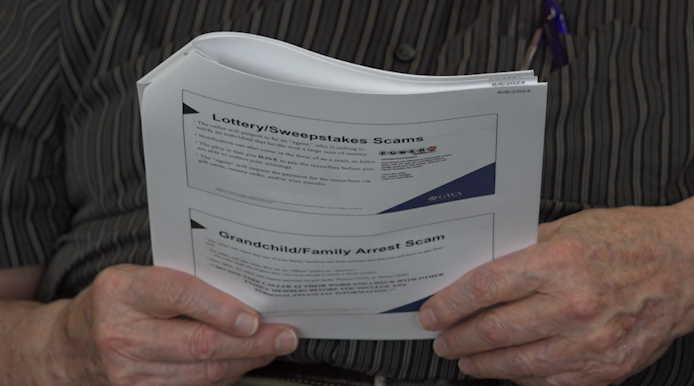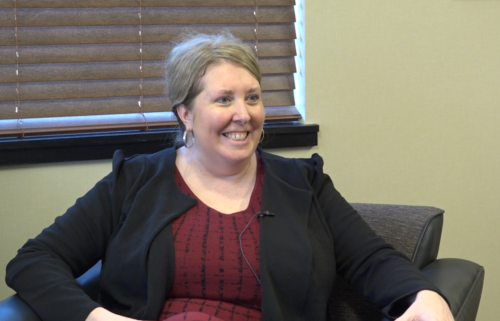St. Joseph experts warn against identity theft

By Leah Rainwater
As online scams become harder to recognize, financial advisers are reminding St. Joseph residents, specifically older adults, to think twice before giving out information.
Nick Gertsema, CEO of Gertsema Wealth Advisors, hosted an informational session on Friday at the Joyce Raye Patterson 50+ Activity Center.
“One of the biggest victims of financial scams are seniors and senior citizens,” Gertsema said.
Gertsema presented different ways people can look out for identity theft scenarios.
“If you think about it, you know, your grandma’s probably not on TikTok,” Gertsema said. “More than likely, you get the phone call to help them with their computer now and again, so they don’t realize all of these scams that are out there.”
Gertsema said he’s been looking into identity theft and scams with clients for years.
“The more research I did, the more terrified I got,” Gertsema said. “Just because, especially with AI and deep fakes, it might be easier for the younger generation to understand or spot AI or something that fake or think that it’s a scam, than it is for a senior generation.”
Each year, the FTC collects data for fraud cases and compiles them into the Consumer Sentinel Network Annual Data Book.
The data collected from the CSN in 2023 notes that 9,873 Missouri residents reported identity theft cases.
Gertsema said scammers will ask you to comply with odd things to steal money or information.
“Biggest things we see is that people will be sent to go get bitcoin or gift cards,” Gertsema said. “And if your bank is sending you to go buy any cryptocurrency or to pay them with a Target gift card … you’re falling for an identity theft or for a scam.”
Ways to prevent identity theft include:
- Request your credit report at least once a year to look over.
- Don’t give out your date of birth or social security number.
- Be mindful of the answers to any security questions for important accounts.
“If you suspect identity theft, contact somebody,” Gertsema said. “The biggest thing we try to tell people is that, ‘You’re not a fool, these are professionals.’ It’s not some high school kid who’s made one bad decision — these are full organizations.”
Gertsema also said that GWA recommends that people change their passwords or usernames to accounts if they suspect they have been hacked.



